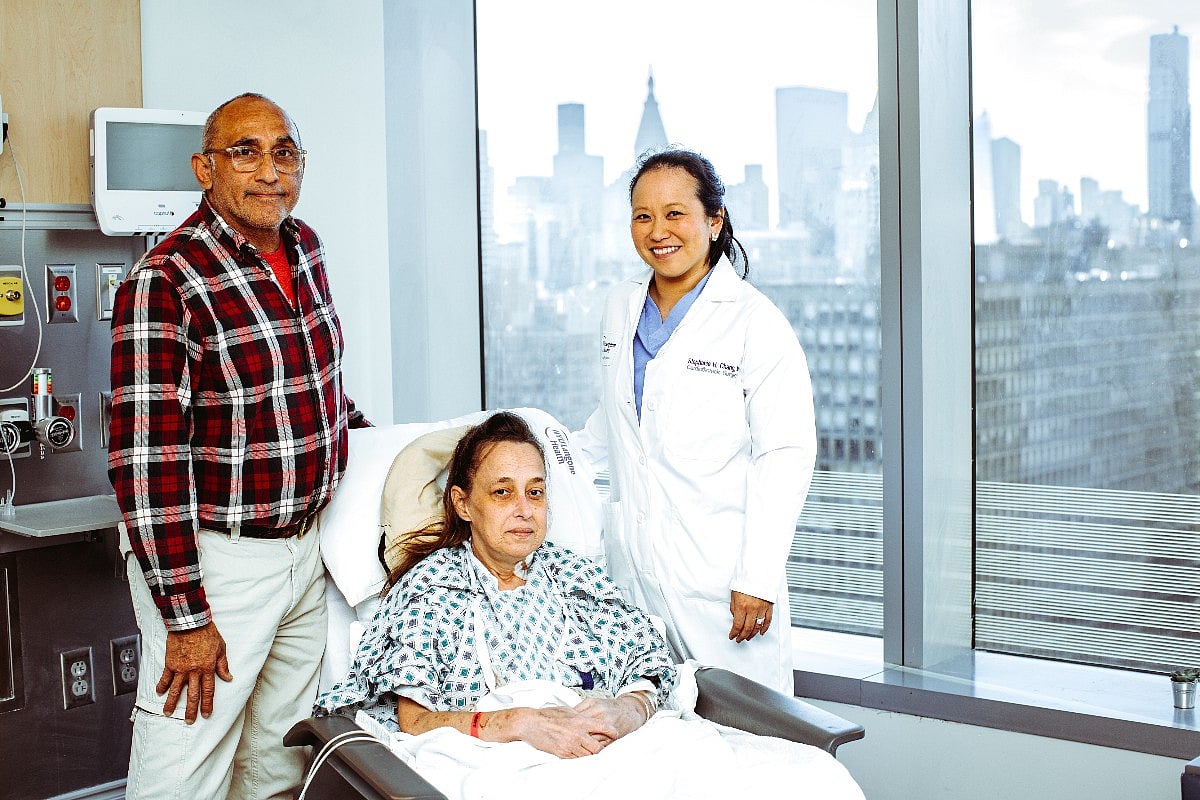Get Healthy!

- Carole Tanzer Miller
- Posted November 22, 2024
Woman Receives World's First Robotic Double-Lung Transplant
A 57-year-old woman with COPD has received the world's first fully robotic double lung transplant.
The breakthrough surgery was performed in October at NYU Langone Health in New York City by Dr. Stephanie Chang. Just a month before, Chang performed a fully robotic single lung transplant -- the nation's first.
"This latest innovation is a watershed moment in lung transplantation surgery worldwide and just the beginning of a new era in patient care," said Dr. Ralph Mosca, chair of cardiothoracic surgery at NYU Grossman School of Medicine, in New York City.
Chang and her team use a da Vinci Xi robot to perform the minimally invasive transplants.
They make small incisions between the ribs, then use the robot to remove and replace the damaged lungs.
The groundbreaking double transplant was performed on Oct. 22, four days after patient Cheryl Mehrkar was added to the transplant list after months of careful evaluation.
"For a long time, I was told I wasn't sick enough for a transplant," she recalled in an NYU news release.
"I'm so grateful to the donor and their family for giving me another chance at life," Mehrkar added. "And I'm so grateful to the doctors and nurses here for giving me hope."
Mehrkar, a volunteer emergency medical technician with the Union Vale Fire Department in Dutchess County, N.Y., inherited a genetic risk for lung disease.
She was 43 when she was diagnosed with COPD in 2010. A bout with COVID-19 in 2022 made her COPD worse.
Until her health relegated her to the sidelines, Mehrkar traveled the world as a scuba divemaster and, with her husband, Shahin, earned a black belt in karate. For many years, they owned a dojo, where she taught martial arts.
Mehrkar said she looks forward to being more active once again and praised her transplant team for making her quality of life a priority.
Surgical director of the lung transplant program at NYU Langone Transplant Institute, Chang was assisted in performing the double transplant by Dr. Travis Geraci and Dr. Eugene Grossi.
"It is one of the greatest privileges to be able to help patients return to a healthy quality of life," Chang said. "By using these robotic systems, we aim to reduce the impact this major surgery has on patients, limit their postoperative pain and give them the best possible outcome."
More information
Johns Hopkins Medicine has more about lung transplantation.
SOURCE: NYU Langone Health/NYU Grossman School of Medicine, news release, Nov. 21, 2024


